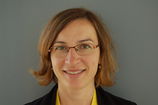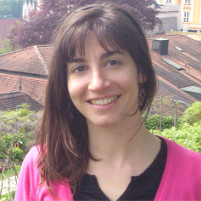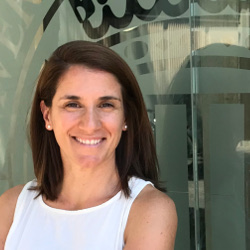
BP-Meet-IoT
2nd International Workshop on BP-Meet-IoT
(affiliated with BPM 2018)
Business Process Management (BPM) is a well-established discipline that deals with the identification, discovery, analysis, (re-)design, implementation, execution, monitoring, and evolution of processes. The Internet of Things (IoT) is a network of interconnected computing devices that are seamlessly embedded in objects, animals, people…, which are called the things in the IoT. By embedding these computing devices, we enable things to sense and respond to their surrounding environment and to build a bridge between the digital and the physical worlds (e.g., all effort around cyber-physical systems). While BPM and the IoT are very different domains, they can mutually benefit from each other. However, several challenges need to be tackled. Particularly, it has to be understood:
- how BPM can improve the IoT by (i) taking a process-oriented perspective and considering the process history, (ii) bridging the abstraction gap between raw sensor data and higher level knowledge extracted from this event data, and (iii) optimizing decision-making in the large;
- how to exploit the IoT to improve processes along their lifecycle by (i) considering sensor data for automatically detecting the start and end of activities, (ii) using event data for making decisions in a pre-defined process model, and (iii) detecting discrepancies between the pre-defined model and actual enactment using event data for online process compliance checking and exception management.
These two general challenges can be further splitted in the following (but not limited to) subchallenges:
- Integrating IoT with process simulation and correctness checks.
- Connection of analytical processes with IoT.
- Communication support for managing manually executed, physical processes.
- Dealing with unstructured environments.
- Specifying the autonomy level of IoT things.
- Bridging the gap between event-based and process-based systems.
- Improving resource monitoring and quality of task execution.
To broaden our knowledge and contribute with novel research at the intersection of these areas, we intend to bring together practitioners and researchers that are interested in making IoT-based ubiquitous business processes a reality. BP-Meet-IoT will discuss the current state of ongoing research, industry needs, future trends, and practical experiences.
Manifesto
The sub-challenges pointed out in this workshop have been already discussed in the manifesto entitled "The Internet-of-Things Meets Business Process Management: Mutual Benefits and Challenges”. This manifesto has been published by the organizers of this workshop together with the growing up BPM-IoT community as a result from the "Fresh Approaches to Business Process Modeling"(16191) seminar held in Dagstuhl in May 2016. If you are willing to join this working group, please contact Massimo Mecella.
Program
BP-meet-IoT 2018 will be held together with PQ 2018. The joint program is detailed below.
| 09:15-09:30 | Opening of the Joint BP-Meet-IoT / PQ Workshop |
| Session 1 - PQ Main Track | |
| 09:30-10:00 | Checking Business Process Models for Compliance – Comparing Graph Matching and Temporal Logic Dennis M. Riehle |
| 10:00-10:30 | From Complexity to Insight. Querying Large Business Process Models to Identify Process Improvements Kurt Madsen |
| Session 2 - BP-meet-IoT Main Track | |
| 11:00-11:30 | Retrofitting of Workflow Management Systems with Self-X Capabilities for Internet of Things Ronny Seiger, Peter Heisig and Uwe Assmann |
| 11:30-12:00 | On the Contextualization of Event-Activity Mappings Agnes Koschmider, Felix Mannhardt and Tobias Heuser |
| 12:00-12:30 | A Classification Framework for IoT Scenarios Sankalita Mandal, Marcin Hewelt, Maarten Oestreich and Mathias Weske |
Important Dates
Submissions & Registration
Manuscripts (research and industrial papers) should be no longer than 12 pages including references, figures and tables and must be formatted in accordance with the LNCS/LNBIP guidelines specified by Springer.
The title page must contain a short abstract and a short list of keywords. Papers should be submitted electronically through easychair.
Relevant members of the international community working on IoT and BPM topics will review all submissions. Each paper will be reviewed by 3 PC members in order to guarantee that only high-quality papers are accepted. All the workshop papers will be published by Springer as a post-proceeding volume (to be sent around 4 months after the workshop) in their Lecture Notes in Business Information Processing (LNBIP) series.
It is mandatory that at least one author will register and present the paper during the workshop.
Program Committee (TBC)
- Jan Mendling, Vienna University of Economics and Business
- Manfred Reichert, University of Ulm, Germany
- Vicente Pelechano, Universidad Politécnica de Valencia, Spain
- Francisco Ruiz, University of Castilla-La Mancha, Spain
- Antonio Ruiz-Cortés, University of Seville, Spain
- Barbara Weber, Technical University of Denmark, Denmark
- Bart Baesens, KU Leuven
- Ferry Pramudianto, North Carolina State University, USA
- Adrian Mos, Naver LABS, Grenoble, France
- Matthias Weidlich, Imperial College London, United Kingdom
- Mathias Weske, Hasso-Plattner-Institut at the University of Potsdam, Germany
- Pnina Soffer, University of Haifa, Israel
- Gero Decker, Signavio GmbH, Germany
- Anne Monceaux, Airbus Group Innovations, France
- Sylvain Cherrier, University Marne-la-Vallée, France
- Armando Walter Colombo, University of Applied Sciences Emden/Leer, Schneider Electric, Germany
- Alaaeddine Yousfi, Hasso-Plattner-Institut at the University of Potsdam, Germany
- Selmin Nurcan, Universite Paris 1-Pantheon-Sorbonne, France
- Andrea Delgado, INCO, Universidad de la República, Uruguay
- Christian Janiesch, University of Wurzburg, Germany
- Udo Kannengießer, Metasonic GmbH, Germany
- Andreas Oberweis, Karlsruhe Institute of Technology, Germany
- Jianwen Su, University of California at Santa Barbara, USA
- Liang Zhang, Fudan University, China
- Andrea Marrella, Sapienza Università di Roma, Italy


